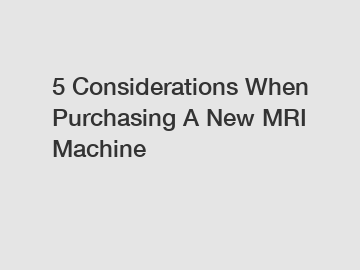How accurate is the DOA saliva test?
Jun. 25, 2024
Accu-Tell contains other products and information you need, so please check it out.
The DOA saliva test, also known as the Drug of Abuse saliva test, is a commonly used method for quickly detecting the presence of drugs in a person's system. This test is often used by employers, law enforcement agencies, and rehabilitation facilities to screen individuals for drug use. However, the accuracy of the DOA saliva test has been a topic of debate among experts. In this article, we will explore how accurate the DOA saliva test is and whether it can be considered a reliable method for detecting drug use.
How does the DOA saliva test work?
The DOA saliva test works by detecting the presence of drugs in a person's saliva. When a person consumes drugs, the drugs circulate through their bloodstream and eventually make their way into their saliva. The test involves collecting a sample of saliva from the individual using a swab or test strip. The sample is then analyzed for the presence of drugs using specific chemical reagents that react with the drugs, producing a positive or negative result.
Accuracy of the DOA saliva test.
The accuracy of the DOA saliva test can vary depending on several factors, including the type of drug being tested, the detection window of the test, and the sensitivity of the test. In general, the DOA saliva test is considered to be a reliable method for detecting recent drug use, typically within the past 24 to 48 hours. However, the test may not be as accurate for detecting drug use beyond this window.
One of the main concerns with the DOA saliva test is its ability to produce false-positive results. False positives can occur when the test mistakenly detects the presence of drugs in someone's system when they have not actually consumed any drugs. This can happen due to various reasons, such as cross-reactivity with other substances or contamination of the sample.
On the other hand, false-negative results are also a potential issue with the DOA saliva test. False negatives occur when the test fails to detect the presence of drugs in someone's system, even if they have consumed drugs. This can happen if the drug is present in very low concentrations in the saliva or if the person has not used drugs recently enough to be detected by the test.
Additional resources:Get the best skin stapler deals
Benefits of Retinal Photographs
Types and Usage Details of Endoscopic Biopsy Forceps
Surgical staple
Everything You Need To Know To Find The Best electric hospital beds for sale
Overall, while the DOA saliva test can be an effective tool for detecting recent drug use, it is not foolproof and should be interpreted with caution. It is essential to consider the limitations of the test and to confirm any positive results with a more accurate and reliable method, such as a blood or urine test.
Conclusion.
In conclusion, the accuracy of the DOA saliva test is limited to detecting recent drug use, typically within the past 24 to 48 hours. While the test can be a useful tool for screening individuals for drug use, it is not without its shortcomings. False-positive and false-negative results can occur, and the test's accuracy may be affected by various factors. It is essential to use the DOA saliva test as part of a comprehensive drug screening program and to confirm any positive results with a more reliable method.
Contact us.
If you have any questions or concerns about the accuracy of the DOA saliva test or would like more information about drug testing methods, please do not hesitate to contact us. Our team of experts is here to help you navigate the complexities of drug testing and provide you with the information you need.
Click here to get more.
For more doa saliva testinformation, please contact us. We will provide professional answers.
Additional resources:What is the summary of surgical instruments?
What Are the Advantages of neusoft medical systems?
Indocyanine Green Angiography - Medical Clinical Policy ...
5 Things a Patient Should Be Asking about a Hospital's ...
When to Use Test Kit Manufacturer?
Choosing the Best Type of Laser Tattoo Removal | Kansas ...
Skin Stapler For Efficiency in Medical Wound Closure
178
0
0
Related Articles
-
259
0
0
-
208
0
0
-
202
0
0
-
193
0
0
-
232
0
0





Comments
All Comments (0)